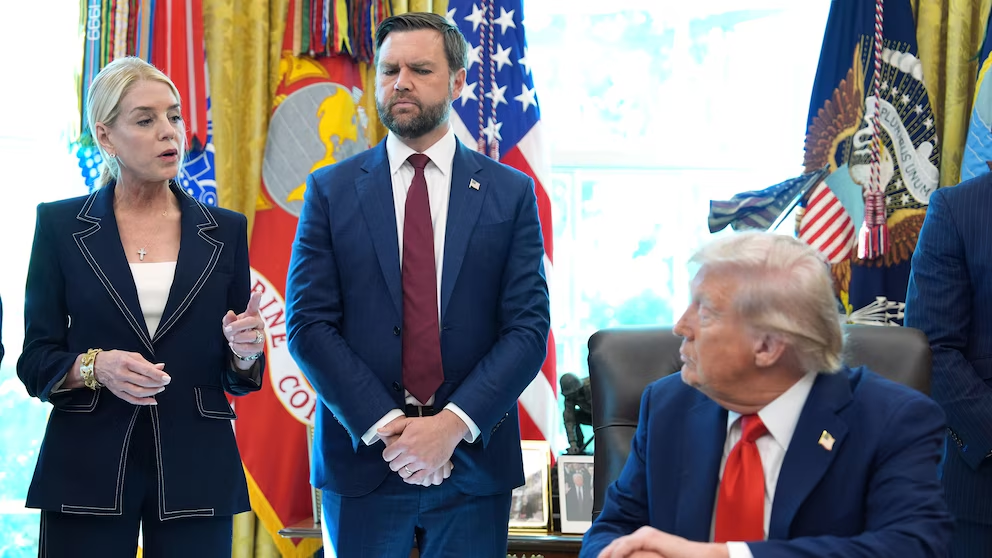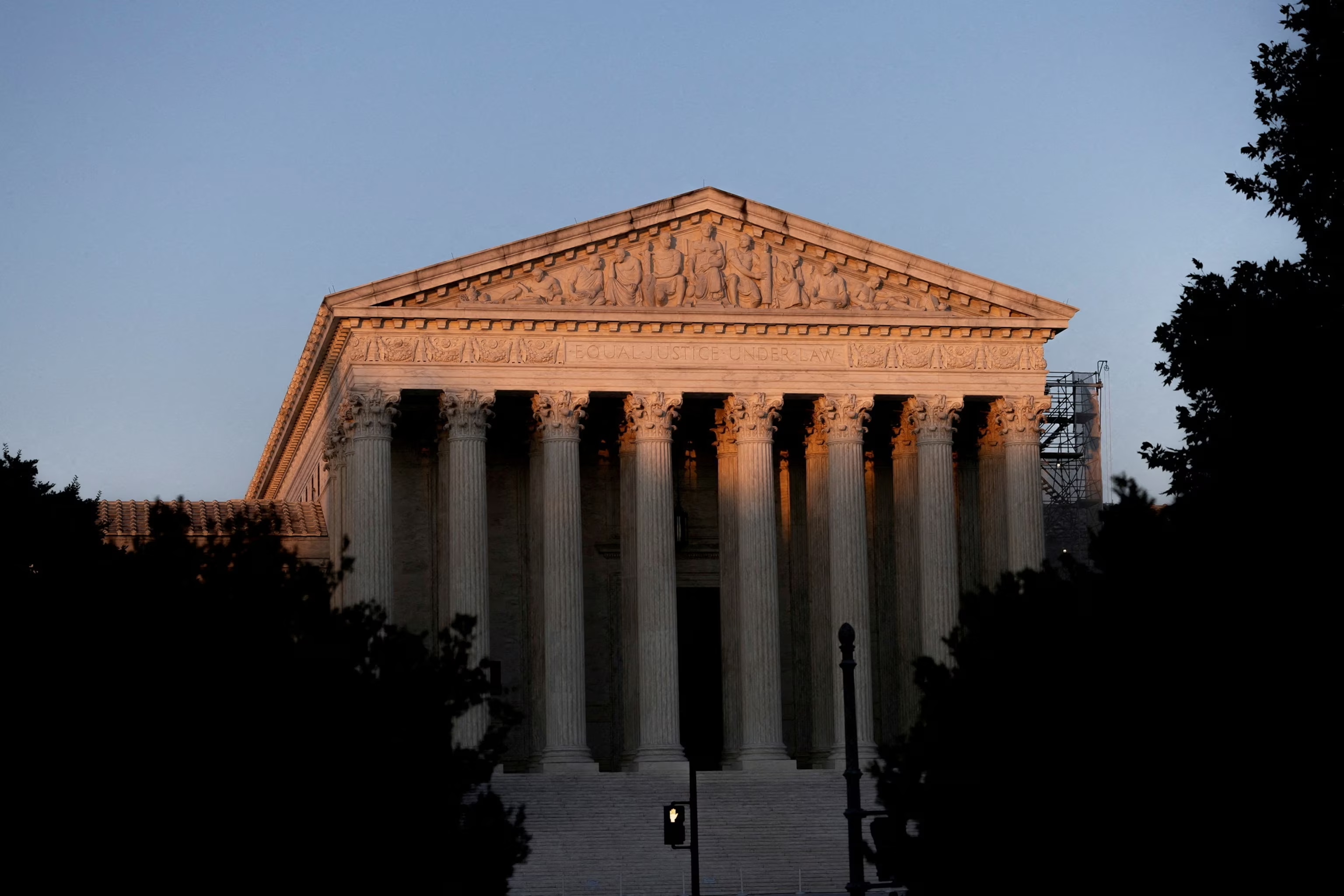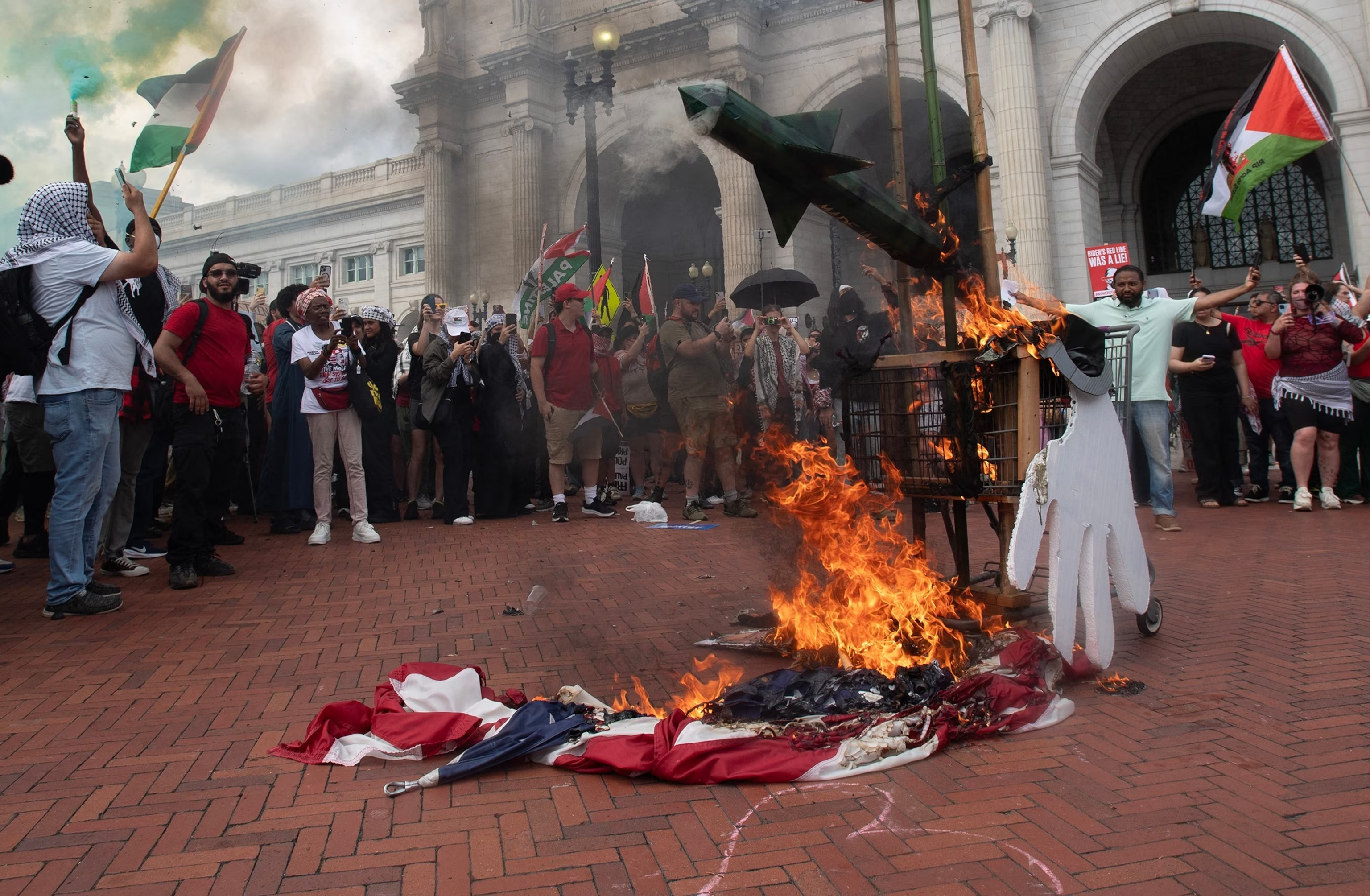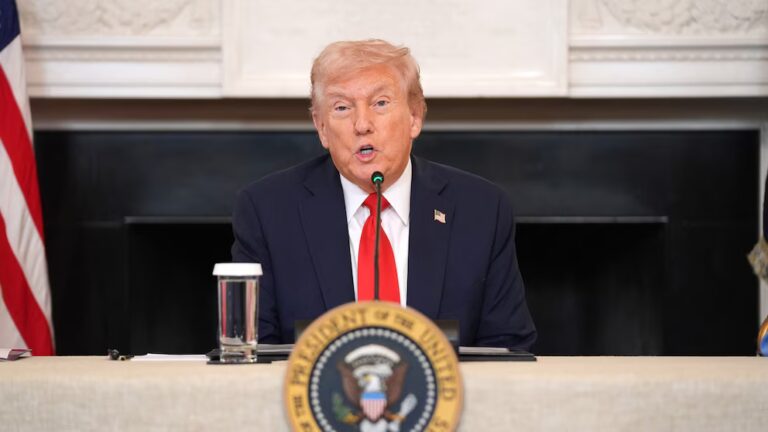
5:34Attorney General Pam Bondi speaks to President Donald Trump in the Oval Office of the White House, Aug. 25, 2025, in Washington, as Vice President JD Vance looks on. Evan Vucci/AP
On Monday, President Trump affixed his signature to an executive order that instructs the Justice Department to “prioritize” the prosecution of U.S. citizens who carry out “acts of American flag desecration,” conduct that the Supreme Court has previously deemed protected by the First Amendment.
To circumvent the constitutional obstacle that the order itself recognizes, Trump instead tasks federal prosecutors with aggressively pursuing alternative charges against flag burners—such as property damage, disorderly conduct, accessory liability, or violations of local open-burning statutes.
Proclaiming the flag “the most hallowed and treasured emblem of the United States of America,” the decree brands its public destruction—by flame or otherwise—“uniquely offensive and provocative” and warns it “may incite violence and riot.”
“The Court has never ruled that desecrating the American Flag performed in a way likely to spark imminent lawless behavior or that qualifies as ‘fighting words’ enjoys constitutional protection,” states the document.
Neither the president nor the order cites any specific recent episodes of flag-burning that have ignited violence or furnishes proof that the act presents a genuine danger. Nationwide statistics on such incidents are virtually nonexistent, and cases are thought to be uncommon.

A view of the U.S. Supreme Court, July 1, 2024.Kevin Mohatt/Reuters
The landmark 1989 ruling in Texas v. Johnson announced for the first time that authorities cannot punish destruction of the U.S. flag when carried out as expressive conduct. The majority likewise discarded the incitement rationale—an exception to First Amendment safeguards—now being pressed by Trump.
Flag burning “does not fall within that narrow category of ‘fighting words’ likely to provoke the average person to immediate retaliation and thus breach the peace,” wrote Justice William Brennan for the 5-4 majority. “No reasonable observer would have seen Johnson’s broad statement of discontent with federal policy as a personal insult or an invitation to fisticuffs.”
“If there is a bedrock principle underlying the First Amendment,” Brennan continued, “it is that government cannot outlaw the expression of an idea just because society deems the idea offensive or disagreeable.”
Brennan’s opinion was joined by conservative titan Justice Antonin Scalia, nullifying flag-desecration statutes then on the books in 48 states.
The petitioner, Gregory Johnson, had been convicted under a Texas statute forbidding flag defacement and sentenced to one year behind bars plus a $2,000 fine. He staged his demonstration outside Dallas City Hall during the 1984 Republican National Convention. The protest produced neither injuries nor threats of violence.
Trump now signals a readiness to return to the Court and narrow the breadth of that precedent, vowing to “pursue litigation to clarify the extent of First Amendment exceptions in this field.”

Protesters burn an American Flag outside of Union Station following Israeli Prime Minister Benjamin Netanyahu’s address during a joint session of congress, in Washington, July 24, 2024.Matthew Hatcher/AFP via Getty Images
Last year, the Trump Justice Department brought charges against a North Carolina resident who was filmed setting fire to an American flag outside Union Station during demonstrations protesting Israeli Prime Minister Benjamin Netanyahu’s visit.
Michael Snow Jr. was convicted of damaging federal property, because the banner had been removed from a pole maintained by the National Park Service. A judge ordered 40 hours of community service and a $525 penalty.
“All across the nation, people are torching flags,” Trump claimed Monday, offering no supporting data. “I believe it came down 5-4, they labeled it free speech. Yet there’s another factor—maybe more vital—let’s call it death. Because once you set that flag on fire, the whole area erupts.”
Constitutional scholars and civil-liberties advocates argue that any prosecutions under the new directive may rest on shaky legal ground.
“You can be punished for setting unauthorized fires, but the state cannot prosecute expressive conduct merely because it is offensive—even if millions of Americans, including the president, deem it ‘uniquely offensive and provocative,’” said Bob Corn-Revere, lead counsel at the nonpartisan Foundation for Individual Rights and Expression.
“You are free to despise flag burning. You can denounce it, debate it, or fly your own banner higher,” Corn-Revere said in a statement. “The genius of free speech is that it guarantees your right to voice opinions—even when others hate what you say.”
Years after casting the decisive vote, even Justice Scalia defended the precedent, insisting the Constitution is perfectly plain. “If I ruled, I’d lock up every sandal-clad, scruffy-bearded oddball who torches Old Glory,” he remarked in 2015. “But I am not king.”
Attorney General Bondi pledged that the administration will safeguard free-expression rights in its enforcement actions. “We will proceed without violating the First Amendment,” she insisted.
Sourse: abcnews.go.com






